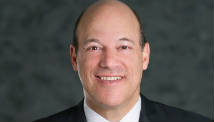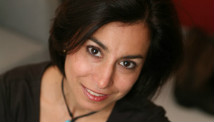Updated 6:47 p.m. ET
NEWTOWN, Conn. Nicole Hockley says she still finds herself reaching for her son's hand or expecting him to crawl into bed with her for a hug before school.
"It's so hard to believe he's gone," said Hockley, whose son Dylan was among the 20 first-graders and six adults killed by a gunman a month ago at Sandy Hook Elementary School.
She was among several parents to speak Monday at the launch of Sandy Hook Promise, a group calling for a national dialogue to help prevent similar tragedies. Parents held photos of their children, spoke in wavering voices, cried and hugged.
"I do not want to be someone sharing my experience and consoling another parent next time. I do not want there to be a next time," Hockley said.
The group did not offer specific remedies, saying it wants to have open-minded discussions about a range of issues, including guns, mental health and safety in schools and other public places. Several speakers said they did not believe there was a single solution.
"We want the Sandy Hook school shootings to be recalled as the turning point where we brought our community and communities across the nation together and set a real course for change," said group co-founder Tom Bittman.

Victims of Conn. school shooting

Vigils for Conn. school shooting victims
Adam Lanza, 20, shot his way into the school on Dec. 14 and killed 26 before committing suicide as police arrived. He also killed his mother at their Newtown home.
Jeremy Richman, whose daughter Avielle was killed, said a deeper understanding of mental health issues is essential. He and his wife, Jennifer Hensel, started a foundation to explore issues such as risk factors and successful interventions.
David Wheeler, whose son Benjamin was killed, said he and his wife Francine have spent the past month rededicating themselves to being the best parents to their surviving son Nate.

Ian Hockley and Nicole Hockley, parents of Sandy Hook massacre victim Dylan Hockley (6), embrace during a press conference with fellow parents of victims on the one month anniversary of the Newtown elementary school massacre on January 14, 2013 in Newtown, Connecticut.
/
John Moore/Getty Images
"What we have recently come to realize is that we are not done being the best possible parents we can be for Ben, not by a very long measure," Wheeler said.
Wheeler emphasized the role of parents.
"I would respectfully request that any parent that hears these words simply pause for a moment and think, ask yourself, what is it worth doing to keep your children safe?" Wheeler said.
Many of the parents have also spoken with national leaders about the issue of gun control. Jackie Barden, who's son Daniel was also killed in the school, told CBS News correspondent Seth Doane she spoke to President Barack Obama.
"I actually mentioned that we were going to be adopting a kitten," Barden said. "I am surprised the process I had to go through -- a lot of forms online. And they called me and interviewed me. And then she was calling me to get some information on our family. I don't know enough about guns, but I think it's a little easier to get a gun than to get a kitten."












